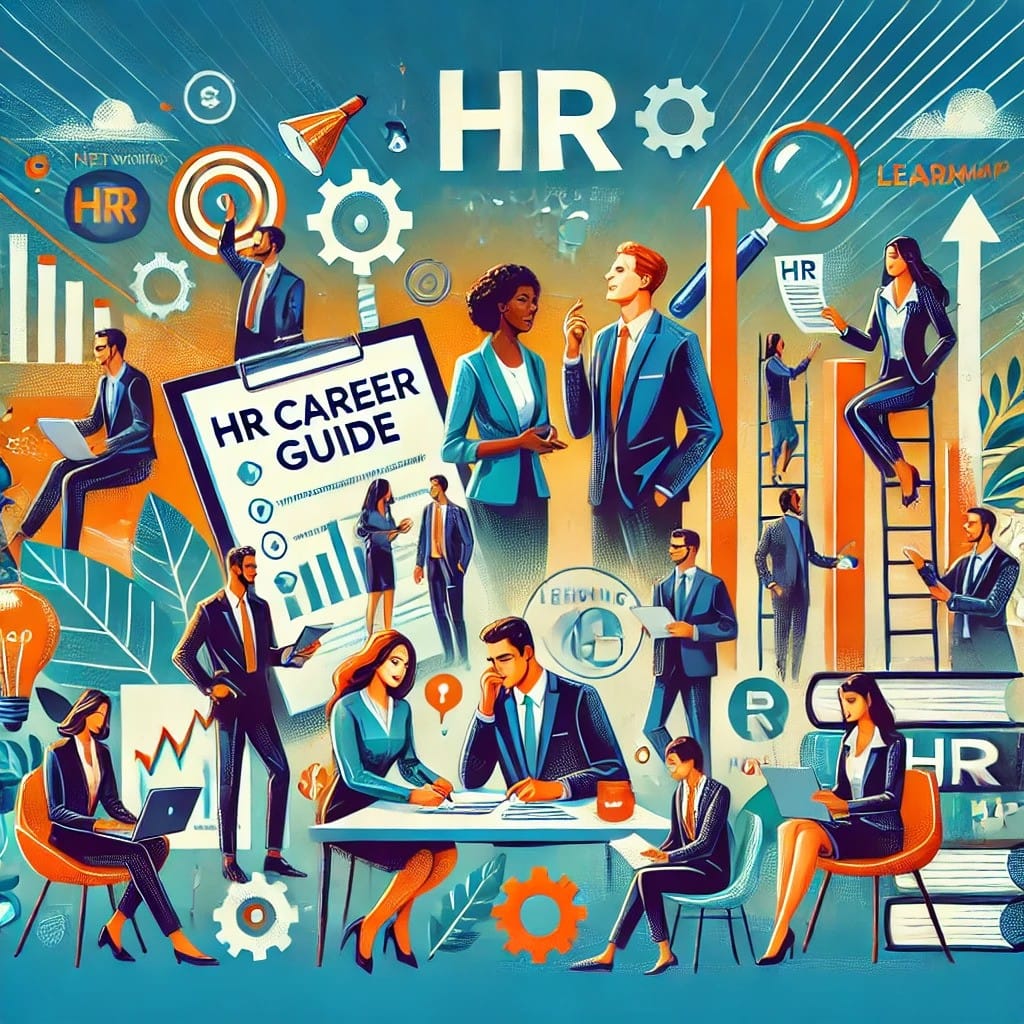HR Career Guide: 5 Tips for Aspiring HR Professionals

Pursuing a career in Human Resources (HR) can be a great choice for those passionate about helping businesses and employees thrive, but as with any career path, it requires intention, focus, and planning. This HR career guide outlines a several useful tips I've picked up as an HR recruiter to help steer you in the right direction.
#1 Understand what HR is and isn't
Before I started working in HR, I thought their only function was to fire people and handle complaints. And while these things do fall under the remit of HR (HR Business Partners specifically), firing people and handling complaints don't quite capture the broader scope of what an HR department actually does. There are roughly two camps that exist:
- There are HR professionals who perform key operational 'service' functions like recruitment, onboarding, performance management, conflict resolution, benefits administration, payroll, compliance, and enterprise resource management, to name a few.
- And then there are HR professionals who work more strategically across their organisations and get involved in more 'forward-thinking' work, which can include organisational design, succession planning, talent management, workforce planning, strategic compensation & benefits, culture development, and DE&I.
Of course, the above isn't exhaustive and is meant to serve as a general overview, as each organisation will employ their own unique operating models with their own nuances. But gaining a clear understanding of each of these individual functions will help you decide what role your interests and skills would best suit within HR.
#2 Gain Relevant Real-Life Experience
Experience is key when breaking into HR. You do not need to have an HR degree.
A degree or HR-related certifications like the CIPD can certainly add credibility to any CV and help open doors (perhaps for a more experienced professional looking to inch out their competition) but a formal education is by no means a prerequisite when breaking into any area of HR. Employers will usually put more weight against any internships or work placements you've done as indicators of how you will perform as an employee.
So my suggestion is to pursue any work experience within HR that is available to you. Non-HR experience in people-facing fields like sales or marketing can also be useful to have under your belt as the transferability of your skillset is another key consideration for employers. More technical domains like HRIS and Analytics may require you to demonstrate more specific skills in data entry and analysis with tools like Excel, but that general transferability and adaptability are still key indicators of performance.
#3 Network with as many HR Professionals as you can
Building a strong network within the HR community can benefit you in a number of ways.
For instance, HR people love LinkedIn. So by joining HR-related LinkedIn groups, you can engage share any valuable insights, engage in discussion, and connect with other professionals you wouldn't have found otherwise. This boosts your visibility and strengthens your personal brand. It's also worth noting that when you connect with individuals 1:1 or have interviewed with someone, it’s always good practice to send a thank-you note or email as a gesture of respect and appreciation.
#4 Refine your Job Search Strategy
When applying to HR roles, tailor your CV to that specific role. Think about what relevant experience and skills employers would want from you.
I always recommend reviewing as many job descriptions as you can for common keywords and to include some of those words in your CV. This is because an applicant tracking system (ATS) can easily pick these up and rank you in order of relevance if recruiters choose to filter by those certain keywords.
Applying to jobs can also be a numbers game, so I recommend keeping a spreadsheet of all your applications with the job details and status of each application recorded so you can keep track and follow up with recruiters or hiring managers accordingly.
#5 Stay Updated on the Latest HR Trends & Insights
Lastly, with new tech like AI changing the way we recruit, shifting regulations, workplace trends, and new skill gaps being identified, it's important to keep track of the latest HR trends & insights to maintain a strong sense of commercial awareness.
How do I stay updated on this? 👇
Sign up to my weekly newsletter below!
Build Up Career Coaching Newsletter
Join the newsletter to receive the latest updates in your inbox.

